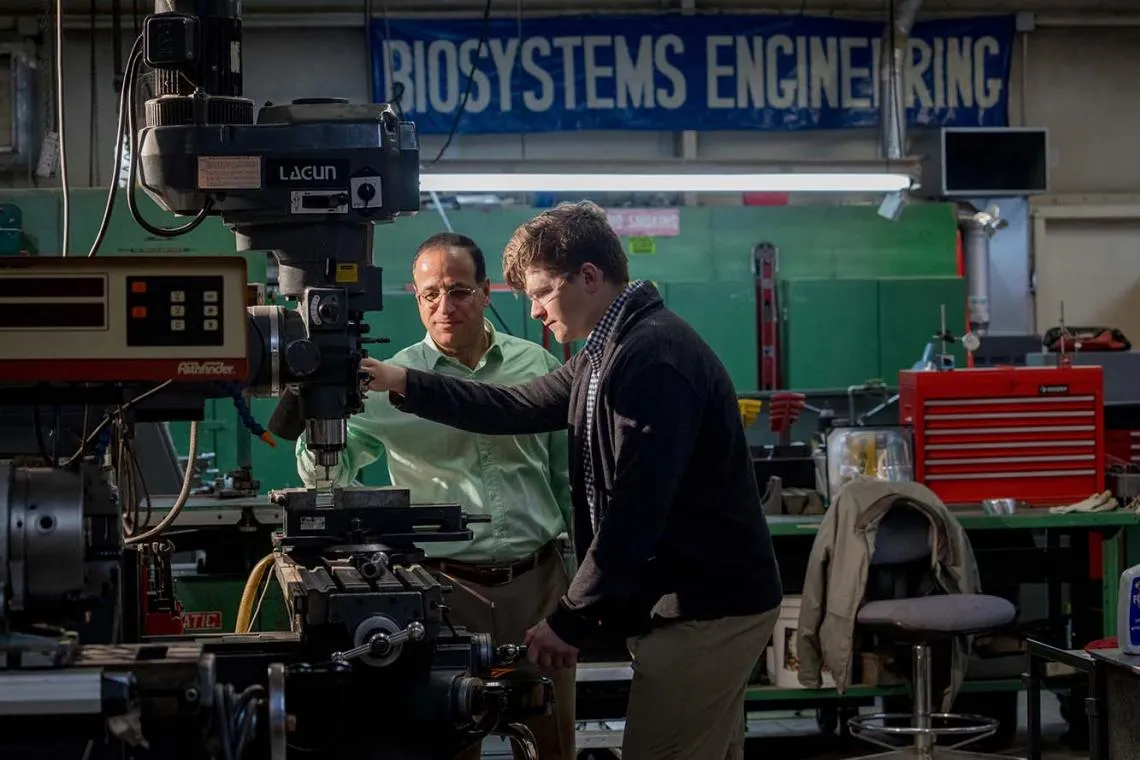Invested in a Sustainable Path
Mark Jendrisak ’19 started to gravitate toward a career in waste or wastewater management while he was earning his bachelor’s degree.

Chris Richards
“When I chose engineering, I realized we could integrate a solution into reducing or reusing wastes,” he said.
Jendrisak also began to think graduate school could be attainable. He applied for scholarships, obtained two jobs, and sought academic and career advice from advisers, instructors and fellow students. He set a goal to finish his master’s degree in biosystems engineering without accruing debt.
He’s been successful in his first year and has begun to work on the applied research project he will base his thesis on.
Working with Akrum Tamimi, assistant professor of practice in biosystems engineering, Jendrisak aims to reduce the amount of meat waste — bones, organs, anything people don’t eat — going into landfills.
Tamimi is partnering with Sunstate Environmental Services and units within the University of Arizona to develop technology projected to reduce the waste created by the university’s Food Products and Safety Lab by 89%. Tamimi believes this technology will be low enough in cost to have widespread commercial application.
Jendrisak is modifying a machine that will shred and dry the meat waste, greatly reducing its volume. The water extracted can be treated and used for irrigation. Jendrisak will then test the waste material, laying the groundwork to determine whether it can be used for applications such as fertilizer or animal feed.
“I look at the wastes we take to the landfill as resources. We want to kill the pathogens and see what we can do with the final product,” Tamimi said.
Jendrisak is enjoying the challenge.
“I’m helping to get waste into a potentially reusable product and finding a solution that benefits everyone involved and society as a whole.”
Finding Support
A biosystems engineering student is succeeding with scholarship support from CALS, Biosystems Engineering, and funds named in honor of Mary J. Huning, T.F. Leehan and W.E. and Lucille Barnum.
This story originally appeared on the Arizona Alumni Magazine website.

